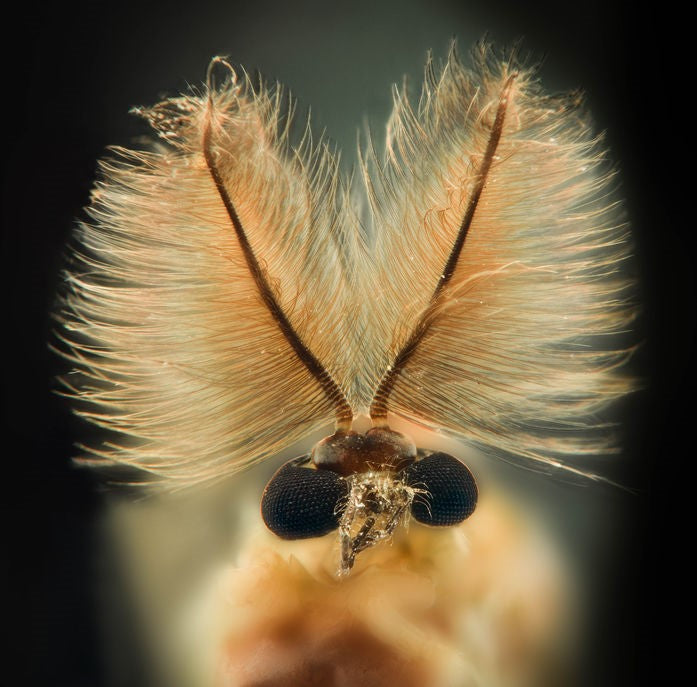
Male vs. Female Mosquitoes: What's the Difference?
The animal world is full of gender differences, from showy male peacocks to deep-sea angler fish. Even insects are part of this natural design, right down to the mosquito. Though they are different, the distinctions between male and female mosquitoes serve an essential purpose: to maximize species survival as a whole. Why should you care about a mosquito's sex characteristics? When you know about a male vs. female mosquito, you can understand which strategies work better to protect your family and outdoor spaces from their relentless assault on your comfort.
Size and Appearance
The most noticeable difference between male and female mosquitoes is their size. Females are larger than males, weighing in at about two milligrams, depending on the species. What other physical characteristics clue you in on the sex of these flying pests?
Males have finer hairs called flagella on their antennae, compared to the plain, thin antennae of the females. These extra flagella help the male hear the higher-pitched buzzing of female mosquitoes, which is how he fulfills his primary purpose of finding a mate.
Female mosquitoes' antennae are less bushy and contain odor receptors that help her find sources of blood, which she needs to reproduce. The protein in human or animal blood is the energy source a female mosquito needs to lay eggs.
Both male and female mosquitoes have a proboscis, although the male's is wider, branched and more feathery. Like the flagella on his antenna, this structure also aids the male in detecting the buzz of the female. The female's proboscis lacks those fine hairs and is more needle-like, which she uses to pierce an animal's skin to find and dine on blood.
Lifespan and Feeding
How long can mosquitoes live, and do both sexes need blood to survive? Female mosquitoes typically live anywhere from two to four weeks, while males have shorter lifespans of only a week or two. Females need that extra time for their eggs to develop, whereas the males only need to live long enough to mate as much as they can.
Mosquito feeding habits also make sense regarding their energy needs and lifespan. Since the focus of the male mosquito is to breed, they do not have the same nutritional needs as the female. Do male mosquitoes bite? They do not, living off the energy-producing sugar of nectar. Males generally avoid contact with humans or animals and prefer to stay close to water sources where they breed. Female mosquitoes need the proteins found in animal blood for egg development, so you know who to blame when you get itchy red bites.
Behavior and Mating
The other noticeable differences in mosquito behavior involve mating and survival. Let's look closer at some of these characteristics:
◾️ Male vs. Female Mosquito Buzzing
To attract a mate, female mosquitoes beat their wings up to 500 times per second, creating a high-pitched buzzing. Now you know the source of that annoying buzz you hear when a female mosquito is nearby. Males also beat their wings at a much lower rate, which does not generate the same sound level as females, resulting in a lower pitch.
◾️ Specialized Receptors in the Female
After mating, female mosquitoes need blood to create eggs. Sensory receptors in the female's antennae help her find the animals upon which to feed. One compound that the female's receptors sense is carbon dioxide, which all animals, including humans, exhale during respiration.
These receptors can also detect heat, sweat and octenol, a naturally occurring byproduct of oxidation in plants and animals with a diet high in vegetable matter, such as oxen and cows. Octenol is also present in human breath and sweat. Here's a fun fact: some mosquito-killing traps use mixtures of carbon dioxide and octenol as bait.
◾️ Location and Proximity to Humans
The truth is, most male mosquitoes keep to their own world. They eat nectar from plants and stick close to water to mate. Female mosquitoes need stagnant water as a nursery, but their food source can be anywhere. They go where the blood is, which means they often travel impressive distances at around one mile per hour. Whether it's that annoying buzz or those itchy bites, you can lay the blame solely on the female mosquito.
Equal-Opportunity Eradication
No one knows the ins and outs of mosquitoes as well as MosquitoNix®. We use a multifaceted approach to mosquito control to prevent female mosquitoes from annoying you and males from reproducing. Contact us to learn more about our services and get a free estimate for treatment for your home or business.
Leave a comment
Comments will be approved before showing up.
Also in News

Kid Friendly Mosquito & Tick Defense on Long Island
Kid Friendly Mosquito & Tick Defense on Long Island



